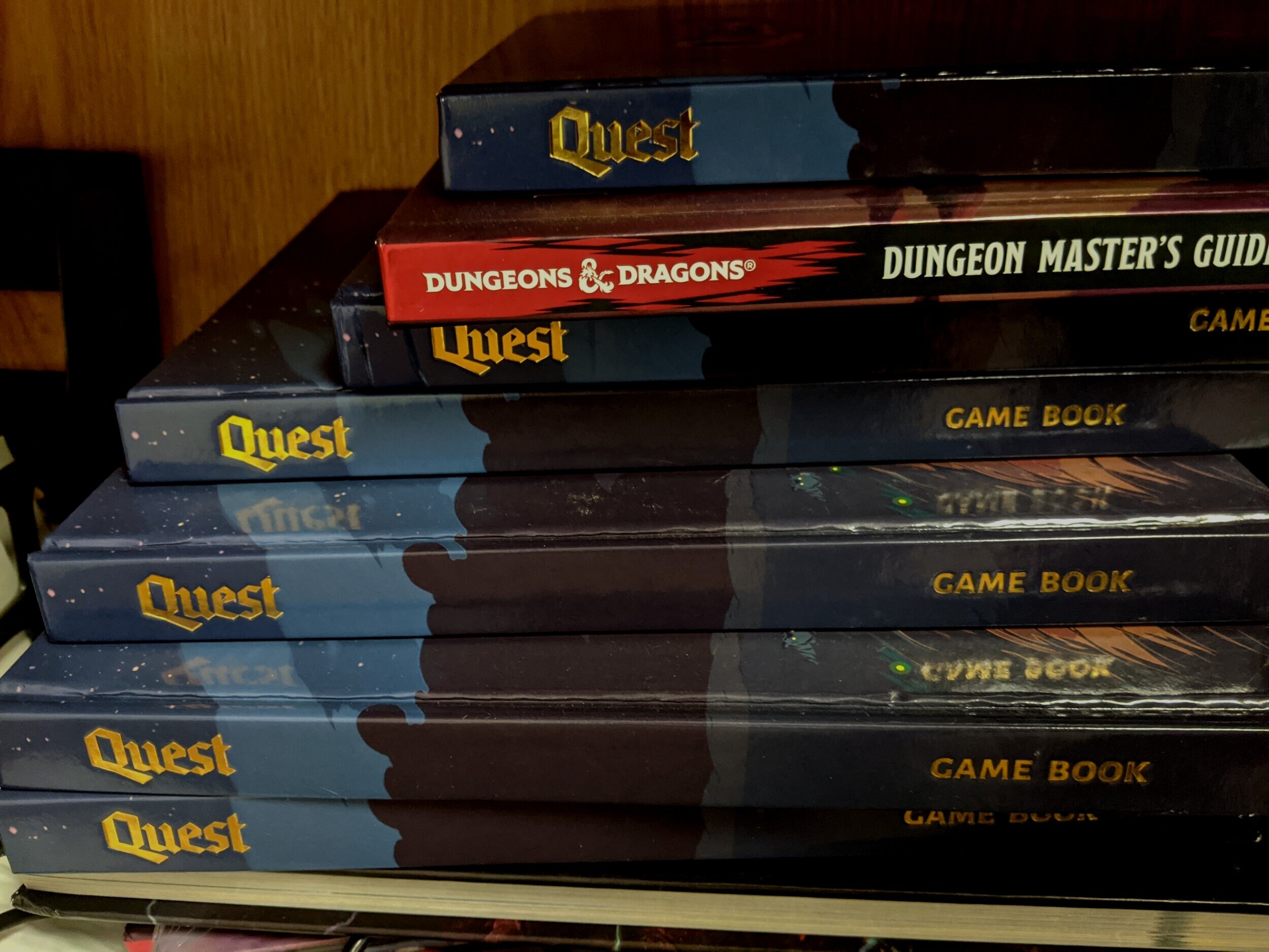
Logistics… the Where, the What and the How
Although they are pretty basic, organizational items are always important to keep things moving. You’ll need…
A Space - You’ll need a space where students can congregate at tables, or at least in circles, and have enough space to talk (and shout, and act things out) to each other. We commandeer the cafeteria, and find that it can hold 4-5 groups, but after that it gets too loud and we have to farm the last few groups out to other classrooms. There should be a dedicated space to display the group norms.
Supplies - Basic supplies needed are:
At least one set of dice per table. You can also use digital dice.
Character Sheets. There are many online. I like this site here to help you get started quickly. I find it is overwhelming when students have to fill out entire character sheets as beginning players and they are just as happy to use pre-generated ones, or ones that they have some limited say over ( class, race, etc.)
Coloring sheets, or other things to do with their hands. Middle schoolers get very wiggly when asked to sit for a long time. If you can provide something for them to do, such as fantasy coloring pages, etc. you are less likely to have them lose focus to their phones or computers.
Resource books and videos. There are SO many online, that you do not need to purchase any for D&D. Here is an online copy of the Player’s Handbook. It is great to have a few copies of the rulebooks or monster manuals around, but most systems have a lot of online resources as well. Many RPGs have educational outreach programs, or your local game store might also want to sponsor your club.
Dungeon Masters - Someone needs to run the tables. It can be you, adult volunteers, students with experience playing, etc. For lots of clubs, this is a bottleneck that can limit the number of participants. If this is the case for you, are there GMless games, board games, Magic: The Gathering, etc. or other activities some students could do while others learn D&D?
A Few Basic Campaigns for New GMs. Here are some D&D 5e recommendations.
The Laureate Trials. I always start new DMs and new players out with this great little campaign designed specifically for onboarding newbies.
And here is a silly random adventure generator if all they need is a hook to get started!
Rituals/Ceremony Supplies - I highly recommend creating a sense of community through some rituals and ceremonies for the group. Whenever we have a new player finish their first adventure, their DM “knights” them, tells the group a couple of things the character did, and gives them a d20 to keep. One of our favorite early adventures is called Cat and Mouse. Students who complete that adventure can sometimes get a tiger eye bead on a string. We also do superlative awards, regale each other with adventures, and do a group check in. Be creative. It doesn’t have to cost money, but the sense of community you are creating is what brings people back each week.